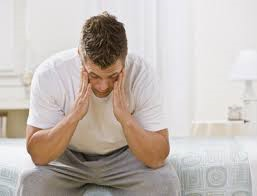
~~Did you know that reading from an iPAD can make it harder to fall sleep and affects how sleepy or alert you are the next day? According to researcher, Dr. Anne-Marie Chang, from Brigham and Women's Hospital in Boston , MA, " this includes any electronic device such as eReaders, laptops, smartphone or certain TV screens used prior to going to bed." Dr. Chang is an associate neuroscientist in BWH’s Division of Sleep and Circadian Disorders and co-author on the study published in the journal, Proceedings of the National Academy of Sciences. She states "The new research supports conclusions from older studies, which have also found that screen time before sleep can be detrimental. We know from previous work that light from screens in the evening alters sleepiness and alertness, and suppresses melatonin levels. This study shows comprehensive results of a direct comparison between reading with a light-emitting device and reading a printed book and the consequences on sleep." It can also cause visual stress, visual distortions, migraines/headaches, attention & focus problems, anxieties, sensory processing disorders, and sensory overload.
If you don't want to feel like a zombie during the day, the findings are clear: Read an actual, printed book if you must stimulate your mind before bed, and avoid screens like your life depends on it, because it actually might. Chang said that sleep deficiency -- not getting enough sleep or obtaining poor quality sleep -- has been linked to other health problems such as obesity, diabetes, and cardiovascular disease. Chronic suppression of melatonin has also been associated with increased risk of certain cancers, she said.
The study ran for two weeks and included 12 participants who read on an iPad for four hours before bed for five days straight, a process that was repeated with printed books. For some, the order was reversed: They started with printed books and moved to iPads. iPad readers took longer to fall asleep, felt less sleepy at night and had shorter REM sleep compared to the book readers, researchers found. The iPad readers also secreted less melatonin, which helps regulate your sleep. They were also more tired than book readers the following day, even if both got a full eight hours of sleep.
If you absolutely, positively must be on your electronic device there may be a way to make it safer. Try a filter that blocks blue light, decreases glare, an app that produces this effect, or Irlen overlays or spectral tints worn as glasses. Irlen overlays can also be placed over reading material to decrease distortions resulting from light sensitivity, and reading on white background with black letter and cost $5 per 8"x 11" colored sheet . Research has shown that blue and bright lights makes you more alert and suppresses your melatonin, thus hurting your quality of sleep.
"The best recommendation (although not the most popular) would be to avoid use of light-emitting screens before bedtime," states Dr. Chang. Additionally, research has shown that for those sensitive to artificial or bright light, Irlen filters help filter offending intensities and spectral bands of light and decrease visual stress and sensory overload, which can contribute or cause fatigue. By eliminating offending light, increases in alertness during the day, deeper levels of relaxation, and deeper sleep can result. See www.irlenvlcmd.com for more information on Irlen Syndrome and what can be done about it using drug-free, low-cost accommodations and technologies backed by over 25 years of evidence-based, international research. Free symptom checklists, videos, and articles are available on this website.






